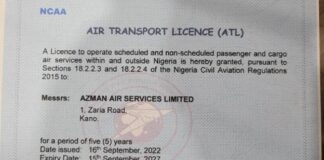Fitch Puts Coronation Merchant Bank on Rating Watch Negative
Coronation Merchant Bank (CMB) has been placed on rating watch negative as a decision to float the naira stokes pressures on its capital after the earnings downturn reported in the financial year 2022.
According to Fitch Ratings, rapid reforms in Nigeria pose a major threat to the merchant lender’s capital adequacy ratio. High funding costs topped key rating downsides, in addition to steep single obligor concentration and low-income earnings assets.
The merchant bank is expected to breach its regulatory capital ratio without capital injection. However, the rating note revealed management plans to raise capital with existing shareholders soon.
In its financial year result for 2022, Coronation Merchant Bank reported a loss, and its capital declined amidst pressures in the Nigerian economy. The merchant bank’s asset quality remains strong, it has a high deposit concentration, and about 43% of its total assets are exposed to low-return investment.
In its rating note, Fitch downgrades the merchant bank Long Term Issuer Default Rating (IDR) at ‘B-‘ and Viability Rating (VR) at ‘b-‘ on Rating Watch Negative (RWN). It also downgraded the bank’s National Long-Term Rating to ‘BBB-(nga)’ from ‘BBB+(nga)’.
“Rating watch negative reflects increased pressure on the bank’s capital ratios on the back of continued weak performance and the recent devaluation of the local currency, which in Fitch’s view could lead to a breach of the minimum required capital ratios if not supported by a fresh equity injection from shareholders”.
The downgrade of the National Rating reflects CMB’s weakened creditworthiness relative to that of peers in Nigeria, as underlined by its weak profitability and a thin capital buffer.
Fitch said the rating watch would be resolved after it obtained sufficient data on CMB’s capital position post an expected recapitalisation and after the effect of the sharp local-currency depreciation is reflected in the bank’s financials.
The merchant lender’s viability rating reflects concentration in and sensitivity to the Nigerian operating environment, a niche franchise and business model, and structural funding and liquidity weaknesses resulting in net losses that contribute to a thin capital buffer, Fitch said.
Recently-elected President Tinubu has pursued key reforms faster than Fitch had expected, completely removing fuel subsidy and liberalising the Nigerian naira within weeks of his inauguration.
“These reforms overall are positive for the sovereign’s credit profile but also pose some near-term challenges including adding inflationary pressures and risks of social unrest. The sharp depreciation of the naira will exert negative pressure on banks’ capital ratios”, Fitch explained.
It said CMB’s small size and reliance on expensive and short-term wholesale deposits and market funding led to structural net losses. The rating note revealed that the bank has the largest proportion of low-yielding reserve assets with the Central Bank of Nigeria (CBN) among Fitch-rated banks.
Coronation exposure to the sovereign is primarily through holdings of sovereign debt securities and cash balances with the CBN, which together accounted for 42.5% of total assets. The rating note stated that single obligor and industry concentrations are also high given Coronation Merchant Bank’s small size, though it maintained solid asset quality.
The bank has recorded zero impaired loans since converting to a merchant bank in 2015 despite volatile market conditions and a concentrated loan book. This reflects prudent underwriting standards and risk controls, as well as the short-term nature of trade-finance loans, the rating note said, though the merchant bank sustained earnings loss.
In 2022, Coronation Merchant Bank reported a loss, resulting in a negative return on average equity of 25%, due to margin pressure from low-yielding government securities and unremunerated restricted deposits at the CBN.
In addition, its cost of funding which accounted for 10.3% of average interest-bearing liabilities in 2022 is inherently higher than commercial bank peers’ as CMB does not have a license to attract cheaper retail deposits.
Fitch said the bank’s fitch core capital ratio dropped to 11.1% at end-2022 from 16.2% at end-2021 due to a net loss for the year. The regulatory total capital adequacy ratio (CAR) was marginally above the minimum regulatory requirement of 10% at the end of 2022 and during first five months of 2023.
Pressure on Coronation Merchant Bank’s capital ratios has increased after the recent naira devaluation due to high foreign-currency loans. The bank’s foreign currency loans account for a substantial part of risk-weighted assets (RWAs)) represented 63% of its total loans at end-2022, according to Fitch.
The merchant lender is noted to rely on short-term wholesale funding. Corporate deposits accounted for 42.3% of its total liabilities in 2022 in addition to borrowings and commercial paper (another 22.8%), which are price- and confidence-sensitive.
Fitch said Coronation Merchant Bank has limited opportunities to diversify its funding profile as its banking license does not allow the collection of retail deposits.
Single-name deposit concentration increased in 2022, exposing the bank to outflow risks, although the bank has been working on reducing concentration levels in 2023. #Fitch Puts Coronation Merchant Bank on Rating Watch Negative#




























































































